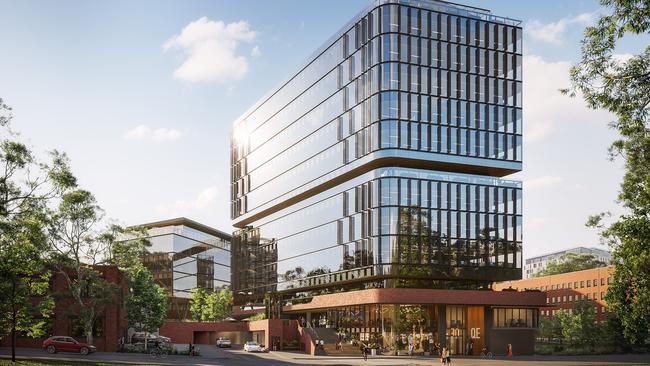City of Greater Geelong names climate change as one of eight key challenges that it must try and overcome
It’s not just “roads, rates and rubbish” that City Hall has its eyes on, with its 2022-23 annual report highlighting a number of challenges ahead.

Geelong
Don't miss out on the headlines from Geelong. Followed categories will be added to My News.
Maintaining infrastructure, combating climate change and managing the region’s rapidly growing population are among the many challenges Geelong council is grappling with, according to its latest annual report.
Among its 192 pages, the report listed eight key challenges impacting council’s ability to deliver services to the region’s 276,000 residents.
The impact of climate change and its impact on the provision of services and infrastructure must be countered by “a comprehensive and proactive approach to climate change adaptation and mitigation”.
“Strategies include the promotion of renewable energy, sustainable transport, protecting and restoring our natural environment, the development of flood-resistant infrastructure, heatwave and flooding plans,” the report said.
Outside of metropolitan Melbourne, the City of Greater Geelong is Victoria’s most populated council area, with its population forecast to grow to almost 400,000 by 2041.
A “holistic approach” must be taken to manage that growth and include sustainable urban planning and development, as well as meeting the demand for affordable and social housing, the report noted.
Changing community needs stemming from a growing and diverse population was also cited as a key challenge.
“We may need to consider issues such as socio-economic status, geographic location, and cultural diversity, and to develop strategies to address any inequities or barriers that may exist,” the report said.
Amid rising costs, pressure on council’s financial sustainability has continued to grow, limiting its ability to invest in new services and infrastructure.
A strategy to maintain essential services and programs, while managing costs, could include “generating revenue through strategic commercial opportunities”.
Prior to her abrupt departure from City Hall last month, then acting chief executive Kaarina Phyland claimed council had a “financial sustainability mountain to climb”.
“When facing tough times, like an organisation heading into insolvency, hard decisions and trade-offs are unavoidable,” she said.
Some of those hard decisions will be around prioritising investment in infrastructure, particularly the upkeep of ageing assets that while costly, must be done to ensure the community’s needs are met.
“We need to prioritise infrastructure upgrades, develop a maintenance plan, use technology to improve maintenance, involve the community and seek external funding such as grants or partnerships to help fund infrastructure and maintenance,” the report said.
The need to address socio-economic issues prevalent in some suburbs was also highlighted in the annual report.
Working alongside disadvantaged communities and support agencies, council said it must improve outcomes in the areas of educational disengagement, Indigenous health and wellbeing, food security, access to health services, domestic violence, housing stress, homelessness and social isolation.
Other challenges outlined in the report, to be presented at Tuesday night’s council meeting, were bridging the “digital divide”, particularly for residents who lack the technology or digital skills to access online services, and managing “organisational changes” at City Hall.
The annual report provides a detailed overview of City Hall’s strategic policy and financial position.
City Hall has approximately 2880 staff, equivalent to 1810 full-time employees.
Staff turnover was 16.9 per cent, down from 17.3 per cent in the previous period.
More Coverage
Originally published as City of Greater Geelong names climate change as one of eight key challenges that it must try and overcome






